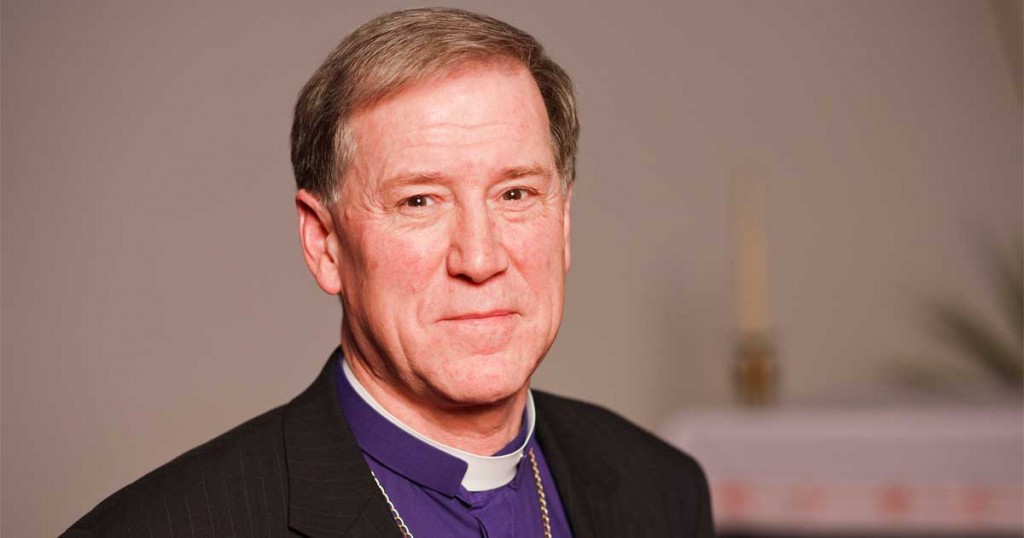Archbishop Fred Hiltz, primate of the Anglican Church of Canada, spoke yesterday at the Council of the General Synod.
The Anglican Journal reports:
“I long for a time in our church when there is as much attention and conviction and passion and voice and action from the rooftops about sexual exploitation, about gender-based violence, human trafficking for the sex trade, missing and murdered Indigenous women, pornography, religiously-based violence around the world, our violence against creation itself, and the greed and the reckless consumption that drives it,” said Archbishop Fred Hiltz.
“There are many of us who would say that we wish that we didn’t have to spend that much time [on the same-sex marriage issue], but in fact we’ve had to,” he said.
Meanwhile, as we reported yesterday, the Council of the General Synod
…. said that while it is legally obliged by General Synod 2013’s Resolution C003 to send the same-sex marriage motion to General Synod 2016, it has also considered “the possibility of other options.” In a message to the church, CoGS said, “The General Synod may discern a legislative option is not the most helpful, and if so, we faithfully hope that through dialogue at General Synod an alternate way will emerge.”
CoGS did not indicate what these “other options” might be, but the message was clearly a response to an earlier statement it received from the House of Bishops that a vote to allow same-sex marriage was “not likely to pass in the Order of Bishops.”
Here’s how the Anglican Journal framed the January primates gathering:
Hiltz also spoke to CoGS at length about his experiences at the January meeting of the primates of the Anglican Communion, and the status of relations within the global Anglican Communion following their decision to censure The Episcopal Church (TEC) for its 2015 decision to perform same-sex marriages. The primates asked that the American church’s participation in Anglican Communion bodies be temporarily limited.
He noted that despite this call from the primates, TEC has indicated that it will send representatives to the upcoming Anglican Consultative Council (ACC) meeting in Lusaka, Zambia, in April, and Hiltz said he expects they will participate as “full members.”
The provinces of Kenya, Uganda and Nigeria have announced that their bishops will boycott the meeting because of the American attendees.
“It raises the whole question of the authority of the instruments of Communion—in and of themselves, and how in fact that authority plays itself out in terms of the interplay among the instruments of Communion,” Hiltz said, noting that the ACC may choose to draft a formal response to the Primates’ Meeting communiqué.
The article does not mention that Hiltz had to convince the primates not to give the ACoC the same treatment as TEC.
There isn’t any question of the authority of the instruments — for example, the primates have no authority beyond themselves. Further, the primates’ resolution, in fact, says nothing about TEC’s attendance at the ACC meeting; rather, it requests that TEC not participate in decisions on polity and in communion conversations with ecumenical partners.

